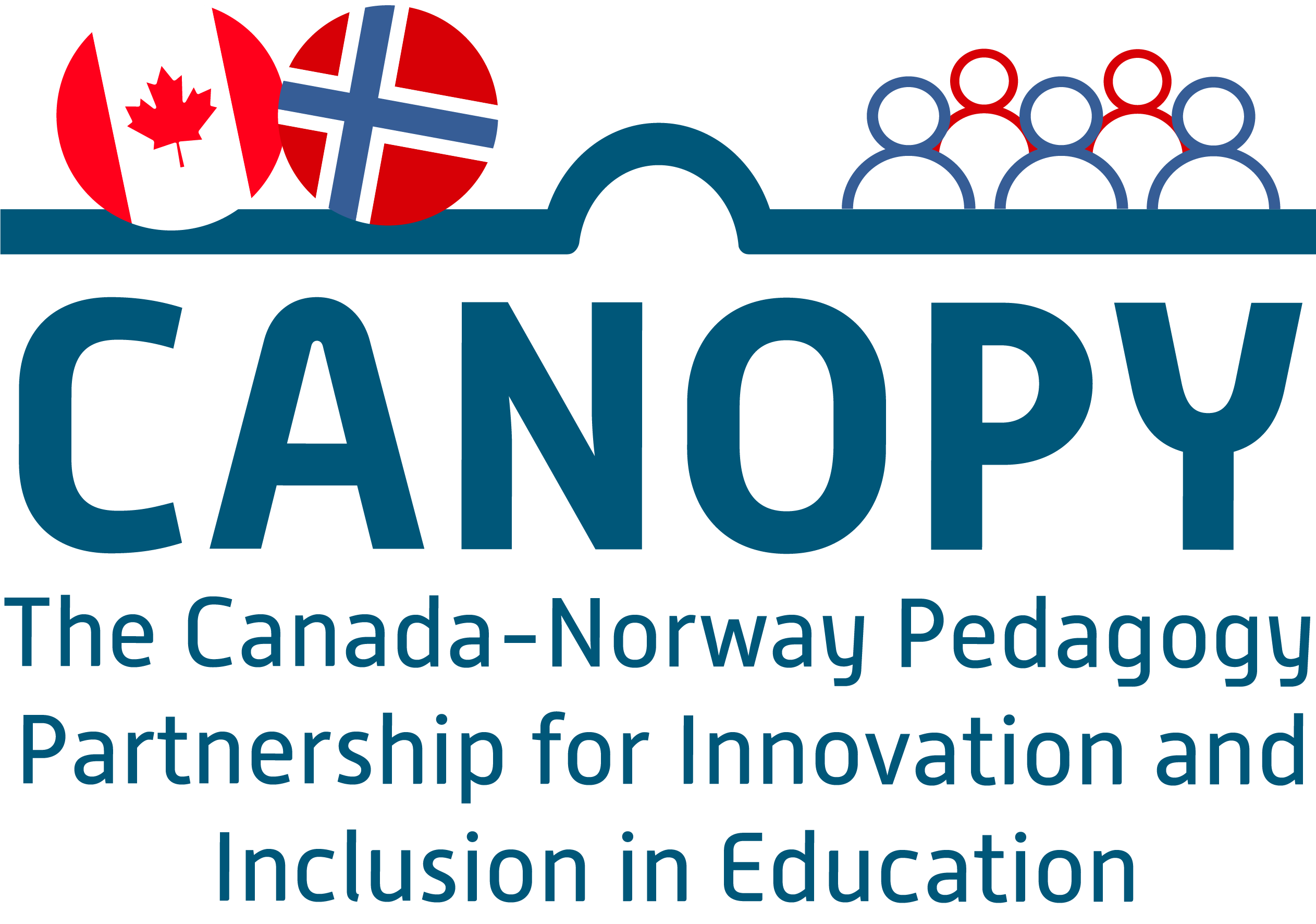Partner Group A: Educational Leadership
MADISON BERRISFORD
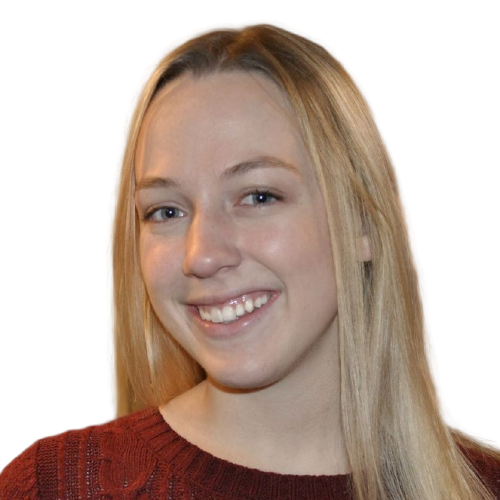
Madison Berrisford is in her third year in the Concurrent Education program at Queen’s University, specializing in Drama and English. After completing three successful practicums, her teaching interests have led her to focus her professional development projects on the fields of community building in classrooms, student-designed learning, empowering students through the arts, and teaching leadership skills. Madison volunteers at local elementary schools to teach choreography for their musicals. Through this she aims to teach life skills such as collaboration, body awareness, and self-expression. In addition, she volunteers with The Breakfast Club: an organization that goes into schools in low socio-economic areas to serve breakfast and run programs with children to include them in activities before the school day starts. She is passionate about involving students in all of her activities in a way to that promotes positive connections with her and their peers. Throughout the school year Madison always attends the Queen’s Conference on Education, a variety of education series workshops, and engages in personal professional development research through the Faculty of Education library. Her focus projects for her current education course, PROF310, are on trauma-informed teaching practices and building positive relationships to foster leadership skills.
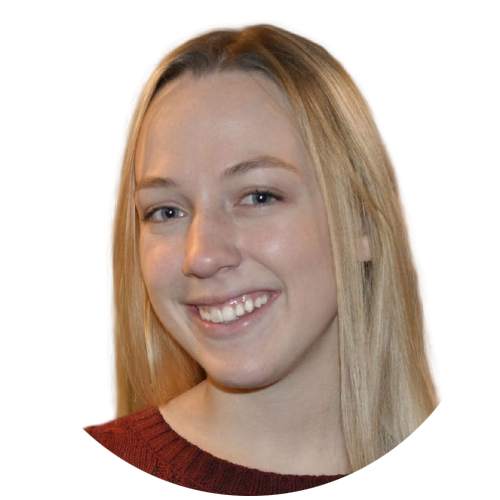
MADISON BERRISFORD

Madison Berrisford is in her third year in the Concurrent Education program at Queen’s University, specializing in Drama and English. After completing three successful practicums, her teaching interests have led her to focus her professional development projects on the fields of community building in classrooms, student-designed learning, empowering students through the arts, and teaching leadership skills. Madison volunteers at local elementary schools to teach choreography for their musicals. Through this she aims to teach life skills such as collaboration, body awareness, and self-expression. In addition, she volunteers with The Breakfast Club: an organization that goes into schools in low socio-economic areas to serve breakfast and run programs with children to include them in activities before the school day starts. She is passionate about involving students in all of her activities in a way to that promotes positive connections with her and their peers. Throughout the school year Madison always attends the Queen’s Conference on Education, a variety of education series workshops, and engages in personal professional development research through the Faculty of Education library. Her focus projects for her current education course, PROF310, are on trauma-informed teaching practices and building positive relationships to foster leadership skills.
AMANDA COOPER
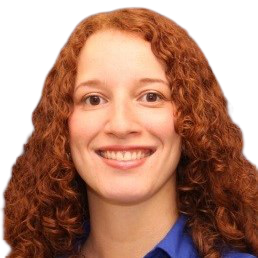
Dr. Amanda Cooper, Associate Professor in the faculty of education at Queen’s University, founded the Research Informing Policy, Practice, and Leadership in Education program (RIPPLE) in 2012 to accelerate the impact of research in K-12 education.
Dr. Cooper has a proven, independent track record of competitive peer-reviewed SSHRC funding (PI: $187, 403; Co-investigator: $199, 113) and was the Principal Investigator on an Ontario ministry evaluation of evidence-networks across the province ($427, 615).
She has held provincial leadership positions (such as advising the ministry of Ontario as an Ontario Education Research Panel member), been invited by the Cabinet Office of Ontario to train policymakers, and is currently a coordinating committee member for the Canadian Knowledge Translation and Exchange Community of Practice.
She provides talks, workshops and consulting on knowledge mobilization for researchers, practitioners, and policymakers across sectors. Her research interests include: knowledge mobilization (research-policy-practice relationships); Research Brokering Organizations (intermediaries that connect research producers and users to increase research use across the education sector); research impact (funders, impact indicators, engaged scholarship); and evidence-informed policy.
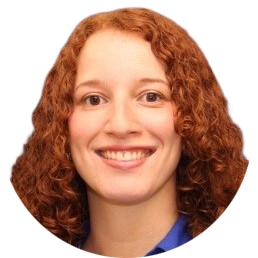
AMANDA COOPER

Dr. Amanda Cooper, Associate Professor in the faculty of education at Queen’s University, founded the Research Informing Policy, Practice, and Leadership in Education program (RIPPLE) in 2012 to accelerate the impact of research in K-12 education.
Dr. Cooper has a proven, independent track record of competitive peer-reviewed SSHRC funding (PI: $187, 403; Co-investigator: $199, 113) and was the Principal Investigator on an Ontario ministry evaluation of evidence-networks across the province ($427, 615).
She has held provincial leadership positions (such as advising the ministry of Ontario as an Ontario Education Research Panel member), been invited by the Cabinet Office of Ontario to train policymakers, and is currently a coordinating committee member for the Canadian Knowledge Translation and Exchange Community of Practice.
She provides talks, workshops and consulting on knowledge mobilization for researchers, practitioners, and policymakers across sectors. Her research interests include: knowledge mobilization (research-policy-practice relationships); Research Brokering Organizations (intermediaries that connect research producers and users to increase research use across the education sector); research impact (funders, impact indicators, engaged scholarship); and evidence-informed policy.
MORTEN EDVARDSEN

Morten Einar Edvardsen is the Head of Division for Teacher Education, Assistant Professor of Pedagogy & Educational Leadership at Nord University, and the Project Manager of CANOPY. He completed his graduate training in School Leadership at NTNU, and he is an active lecturer and course coordinator for both teacher education and principal education programs across three universities (Nord U, NTNU, and UiT).
Morten has nearly twenty years of educational management experience at multiple levels. Starting initially as a secondary-education teacher, he advanced to other roles, including as: a school Principal; an Inspector, a Department Head, a Chief Operating Officer, and a Unit Leader for the municipal Superintendent’s Office; an Advisor for the Norwegian Directorate for Education and Training.
In many of these positions, Morten has served as a Project Manager for numerous national, municipal, and institutional initiatives. These projects have focused on some of the most pressing issues in the education sector, among them: developing ICT competences and adopting digital resources, sustainability, school attendance, anti-bullying, assessment, and literacy. He is currently responsible for the “University School” Project at Nord University and he is engaged with the Norwegian Ministry of Education and Research in their “Good Kindergarten- and School-Owner” Project for Northern-Norway.
Morten's research interests include: national curriculum legislation; leadership of "Learning Schools" (university schools) and of school-based competence development; and student-centred leadership through validation and recognition.
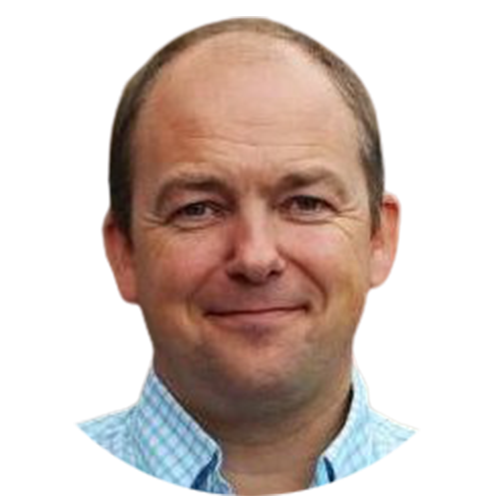
MORTEN EDVARDSEN

Morten Einar Edvardsen is the Head of Division for Teacher Education, Assistant Professor of Pedagogy & Educational Leadership at Nord University, and the Project Manager of CANOPY. He completed his graduate training in School Leadership at NTNU, and he is an active lecturer and course coordinator for both teacher education and principal education programs across three universities (Nord U, NTNU, and UiT).
Morten has nearly twenty years of educational management experience at multiple levels. Starting initially as a secondary-education teacher, he advanced to other roles, including as: a school Principal; an Inspector, a Department Head, a Chief Operating Officer, and a Unit Leader for the municipal Superintendent’s Office; an Advisor for the Norwegian Directorate for Education and Training.
In many of these positions, Morten has served as a Project Manager for numerous national, municipal, and institutional initiatives. These projects have focused on some of the most pressing issues in the education sector, among them: developing ICT competences and adopting digital resources, sustainability, school attendance, anti-bullying, assessment, and literacy. He is currently responsible for the “University School” Project at Nord University and he is engaged with the Norwegian Ministry of Education and Research in their “Good Kindergarten- and School-Owner” Project for Northern-Norway.
Morten's research interests include: national curriculum legislation; leadership of "Learning Schools" (university schools) and of school-based competence development; and student-centred leadership through validation and recognition.
HENRIETTE FALCH

Henriette Falch, from Bodø, Norway, is in the first year of the primary education program (grades 1-7) at Nord University, in which she specializes in English. Through her previous job experience working with children in kindergartens, among other organizations, Henriette discovered her love for teaching; she maintains that having a role in the development and motivation of children is among the most rewarding and enjoyable experiences. Prior to beginning her degree, Henriette traveled extensively, seeking to experience new cultures and to visit primary schools in rural areas in order to learn more about educational systems abroad. She found that regardless of school conditions and resources, invariably students remained eager and excited to learn. These experiences inspired Henriette to pursue international teaching opportunities in developing regions after finishing her degree; she values quality education as a human right, one that teachers are called to promote. She aspires to be an educational leader who can foster an equitable, respectable, and safe environment for students.
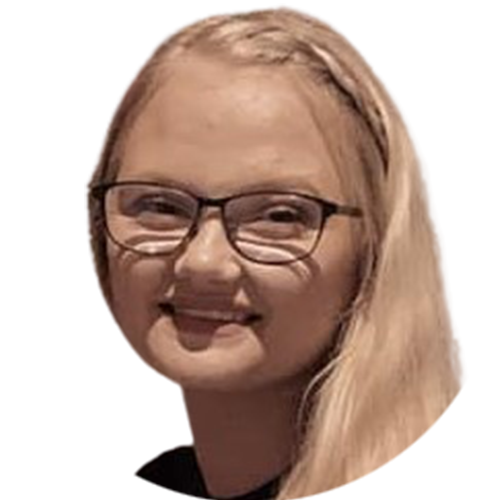
HENRIETTE FALCH

Henriette Falch, from Bodø, Norway, is in the first year of the primary education program (grades 1-7) at Nord University, in which she specializes in English. Through her previous job experience working with children in kindergartens, among other organizations, Henriette discovered her love for teaching; she maintains that having a role in the development and motivation of children is among the most rewarding and enjoyable experiences. Prior to beginning her degree, Henriette traveled extensively, seeking to experience new cultures and to visit primary schools in rural areas in order to learn more about educational systems abroad. She found that regardless of school conditions and resources, invariably students remained eager and excited to learn. These experiences inspired Henriette to pursue international teaching opportunities in developing regions after finishing her degree; she values quality education as a human right, one that teachers are called to promote. She aspires to be an educational leader who can foster an equitable, respectable, and safe environment for students.
YAEL GAZIT
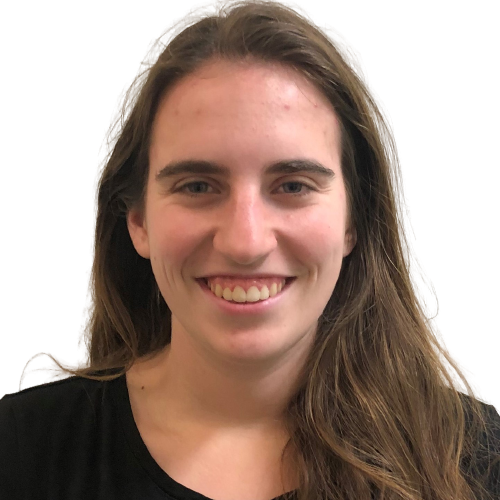
Yael Gazit is a fourth year Concurrent Education student at Queen’s University, specializing in History and English Literature at the Intermediate-Senior level. Yael’s jobs have been grounded in child development: teaching swimming, camp counselling, tutoring in schools, etc. Her most valuable experience was was directing the Counselor-in-training program at an overnight camp, where she taught her sixteen-year-old campers that there is not just a one size-fits-all type of leadership. She is also immersed in the university community. In the Education Faculty, Yael has spent several years on the student association, first as an intern to the Vice President and then as “Head Teach,” the chair of the faculty’s orientation week. In this role Yael was responsible for leading a team of five executives and fifty leaders, in conjunction with other faculties and professors, planning welcome week for first-year Education students. She put in enormous effort to ensure that the fifty leaders felt empowered to help the incoming students, and thereby creating a tight-knit, supportive, and inclusive community. Outside of the faculty, Yael is passionate about storytelling through photography and videography, and she has volunteered as videographer for studios, TEDx conferences, and film festivals. She has also volunteered with the Peer Academic Support Centre, the International Programs Office, and the Outdoors Club executive. Last winter, Yael went on exchange to the University of Edinburgh in Scotland, which she considers the most valuable experience of her university career. She hopes to continue her international involvement by teaching abroad one day, and by finding unique ways for students to develop their own leadership skills and to learn in non-traditional classroom settings.
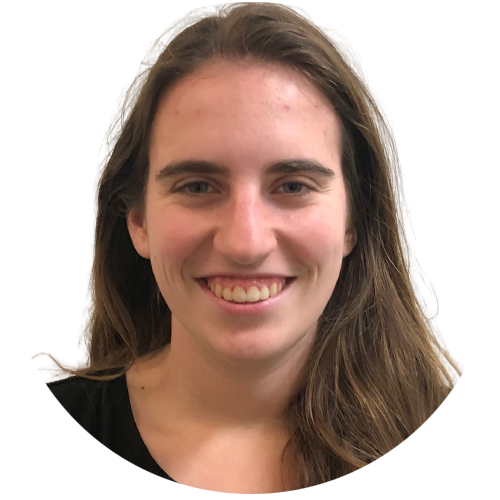
YAEL GAZIT

Yael Gazit is a fourth year Concurrent Education student at Queen’s University, specializing in History and English Literature at the Intermediate-Senior level. Yael’s jobs have been grounded in child development: teaching swimming, camp counselling, tutoring in schools, etc. Her most valuable experience was was directing the Counselor-in-training program at an overnight camp, where she taught her sixteen-year-old campers that there is not just a one size-fits-all type of leadership. She is also immersed in the university community. In the Education Faculty, Yael has spent several years on the student association, first as an intern to the Vice President and then as “Head Teach,” the chair of the faculty’s orientation week. In this role Yael was responsible for leading a team of five executives and fifty leaders, in conjunction with other faculties and professors, planning welcome week for first-year Education students. She put in enormous effort to ensure that the fifty leaders felt empowered to help the incoming students, and thereby creating a tight-knit, supportive, and inclusive community. Outside of the faculty, Yael is passionate about storytelling through photography and videography, and she has volunteered as videographer for studios, TEDx conferences, and film festivals. She has also volunteered with the Peer Academic Support Centre, the International Programs Office, and the Outdoors Club executive. Last winter, Yael went on exchange to the University of Edinburgh in Scotland, which she considers the most valuable experience of her university career. She hopes to continue her international involvement by teaching abroad one day, and by finding unique ways for students to develop their own leadership skills and to learn in non-traditional classroom settings.
NAYR IBRAHIM
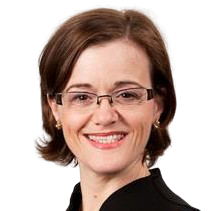
Nayr Correia Ibrahim is Associate Professor of English Subject Pedagogy at Nord University in Bodø, Norway. She has over 25 years of experience in English and bilingual education as teacher, teacher educator, materials writer, manager and researcher. Originally from South Africa, Nayr worked in Portugal, Cairo, Hong Kong and 20 years in Paris, where she headed the Young Learner and Bilingual Education programmes for the Teaching Centre at the British Council, before moving to Norway.
Nayr holds a MA in TEFL and a PhD in trilingualism, triliteracy and identity from the University of Reading. She has participated in various EU projects on multilingualism: she was on a panel of experts reviewing the EU's Key Competencies for Lifelong Learning (2018); she coordinated the British Council participation in the EUNIC Paris project Ateliers du Multilingualisme; and contributed to the ECML project on Early Language Learning: Inspiring language learning in the early years. Nayr's research also focuses on children's voices, learning to learn, children’s language rights and authentic children’s literature for language and intercultural development. Her publication, Teaching children how to learn, Delta Publishing, with Gail Ellis, won an award at the 2016 ESU English Language Awards. Nayr is a member of the Nord Research Group For Children’s Literature in ELT (CLELT) and peer reviewer for the CLELE Journal.
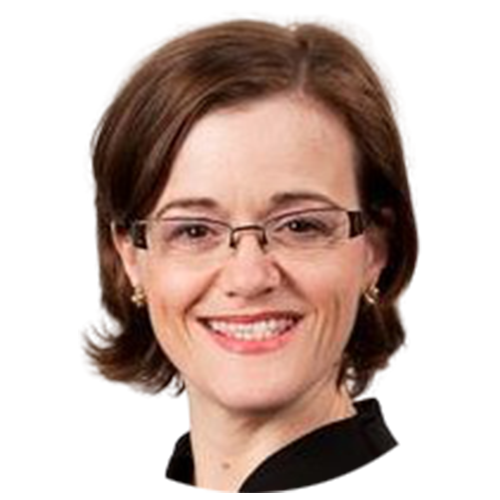
NAYR IBRAHIM

Nayr Correia Ibrahim is Associate Professor of English Subject Pedagogy at Nord University in Bodø, Norway. She has over 25 years of experience in English and bilingual education as teacher, teacher educator, materials writer, manager and researcher. Originally from South Africa, Nayr worked in Portugal, Cairo, Hong Kong and 20 years in Paris, where she headed the Young Learner and Bilingual Education programmes for the Teaching Centre at the British Council, before moving to Norway.
Nayr holds a MA in TEFL and a PhD in trilingualism, triliteracy and identity from the University of Reading. She has participated in various EU projects on multilingualism: she was on a panel of experts reviewing the EU's Key Competencies for Lifelong Learning (2018); she coordinated the British Council participation in the EUNIC Paris project Ateliers du Multilingualisme; and contributed to the ECML project on Early Language Learning: Inspiring language learning in the early years. Nayr's research also focuses on children's voices, learning to learn, children’s language rights and authentic children’s literature for language and intercultural development. Her publication, Teaching children how to learn, Delta Publishing, with Gail Ellis, won an award at the 2016 ESU English Language Awards. Nayr is a member of the Nord Research Group For Children’s Literature in ELT (CLELT) and peer reviewer for the CLELE Journal.
REBECCA LUCE-KAPLER
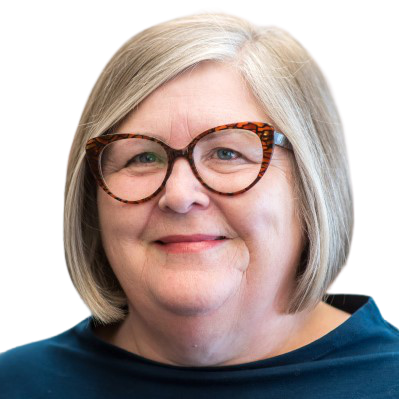
Dr. Rebecca Luce-Kapler is currently Dean of the Faculty of Education and Professor of Language and Literacy Education at Queen's University. Her research focuses on the integral role of literary practices, particularly writing, in the development of human consciousness and identity. This work has contributed to understanding the normative power of cultural forms and the importance of interpretive reading and writing practices for generative learning and teaching.
She is author of Writing With, Through, and Beyond the Text: An Ecology of Language (Lawrence Erlbaum, 2004) and The Gardens Where She Dreams (Borealis, 2003). She is co-author of Engaging Minds: Changing Teaching in Complex Times (Routeledge, 2000, 2008, 2015) and Language and Learning: An Introduction for Teaching (Oxford, 2014). Her broader research interests include: writing processes, pedagogies, and technologies; E-literature, fiction, and poetry; teacher education; and curriculum theory.
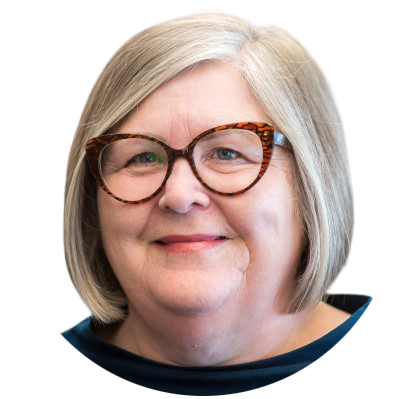
REBECCA LUCE-KAPLER

Dr. Rebecca Luce-Kapler is currently Dean of the Faculty of Education and Professor of Language and Literacy Education at Queen's University. Her research focuses on the integral role of literary practices, particularly writing, in the development of human consciousness and identity. This work has contributed to understanding the normative power of cultural forms and the importance of interpretive reading and writing practices for generative learning and teaching.
She is author of Writing With, Through, and Beyond the Text: An Ecology of Language (Lawrence Erlbaum, 2004) and The Gardens Where She Dreams (Borealis, 2003). She is co-author of Engaging Minds: Changing Teaching in Complex Times (Routeledge, 2000, 2008, 2015) and Language and Learning: An Introduction for Teaching (Oxford, 2014). Her broader research interests include: writing processes, pedagogies, and technologies; E-literature, fiction, and poetry; teacher education; and curriculum theory.
NILS OLE NILSEN

Nils Ole Nilsen is a Professor in Pedagogy, Educational Leadership, and School Development in the Faculty of Education and Arts at Nord University.
Nils Ole has extensive research and teaching experience in compulsory, high school, and higher education in Norway. He has a background as a teacher, principal, and dean in both compulsory and high schools, as well as teacher education programs. For the last ten years Nils Ole has been a Coordinator for the National Principal Education program (part of the Master in Educational Leadership) at the Norwegian University of Science and Technology (NTNU).
His current research project examines how to lead professional learning communities in schools through the implementation of a new national curriculum reform. His other project concerns digitization, collaboration, and school leadership.
Nils Ole has served as a Project Leader for several national research and school development projects, among them: "Assessment for Learning," "Implementation of New Curriculum," "Implementation of Learning Technologies," and "Professional Learning Communities." His broader research interests include: educational Leadership; organizational learning; professional development.

NILS OLE NILSEN

Nils Ole Nilsen is a Professor in Pedagogy, Educational Leadership, and School Development in the Faculty of Education and Arts at Nord University.
Nils Ole has extensive research and teaching experience in compulsory, high school, and higher education in Norway. He has a background as a teacher, principal, and dean in both compulsory and high schools, as well as teacher education programs. For the last ten years Nils Ole has been a Coordinator for the National Principal Education program (part of the Master in Educational Leadership) at the Norwegian University of Science and Technology (NTNU).
His current research project examines how to lead professional learning communities in schools through the implementation of a new national curriculum reform. His other project concerns digitization, collaboration, and school leadership.
Nils Ole has served as a Project Leader for several national research and school development projects, among them: "Assessment for Learning," "Implementation of New Curriculum," "Implementation of Learning Technologies," and "Professional Learning Communities." His broader research interests include: educational Leadership; organizational learning; professional development.
THASHIKA PILLAY
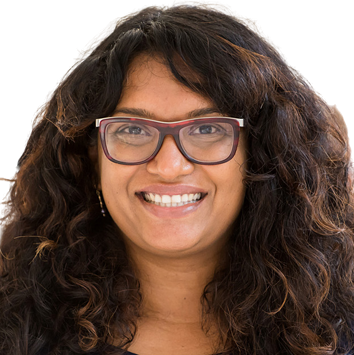
Dr. Thashika Pillay is an Assistant Professor in Educational Policy in the Faculty of Education, Queen’s University. Thashika completed her PhD in Social Justice and International Education in the Department of Educational Policy Studies at the University of Alberta.
Thashika has extensive research and teaching experience in K-12 and higher education in Canada, Australia, and Ethiopia. Thashika’s research program explores questions of social, cultural, economic, political, and epistemic justice in working towards decolonizing educational leadership and policy in formal and informal educational contexts. In addition, Thashika is co-editor of Decolonizing Global Citizenship Education (2015) and Global Citizenship, Common Walth and Uncommon Citizenships (2018). Her current research project examines teaching for and learning about equity, justice, and advocacy for First Nations’ children in Canada; this project brings together grade seven to grade nine youth from across “Canada” in order to better understand the pedagogies and learnings of anti-oppressive education for educators and students.
Thashika's broader research interests include: anti-colonial educational policy; anti-racist feminist pedagogies; critical global citizenship; comparative & international education; indigenous knowledge systems; intersectionality; migration and diasporic studies; and teacher education.
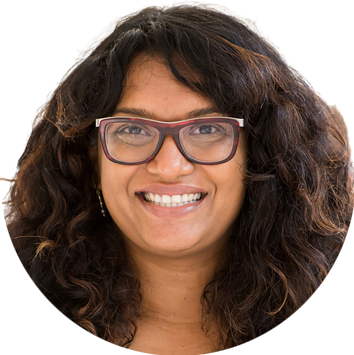
THASHIKA PILLAY

Dr. Thashika Pillay is an Assistant Professor in Educational Policy in the Faculty of Education, Queen’s University. Thashika completed her PhD in Social Justice and International Education in the Department of Educational Policy Studies at the University of Alberta.
Thashika has extensive research and teaching experience in K-12 and higher education in Canada, Australia, and Ethiopia. Thashika’s research program explores questions of social, cultural, economic, political, and epistemic justice in working towards decolonizing educational leadership and policy in formal and informal educational contexts. In addition, Thashika is co-editor of Decolonizing Global Citizenship Education (2015) and Global Citizenship, Common Walth and Uncommon Citizenships (2018). Her current research project examines teaching for and learning about equity, justice, and advocacy for First Nations’ children in Canada; this project brings together grade seven to grade nine youth from across “Canada” in order to better understand the pedagogies and learnings of anti-oppressive education for educators and students.
Thashika's broader research interests include: anti-colonial educational policy; anti-racist feminist pedagogies; critical global citizenship; comparative & international education; indigenous knowledge systems; intersectionality; migration and diasporic studies; and teacher education.
ANDREAS STRAND

Andreas Strand is a 22-year-old student from the small norther-Norwegian village of Beiarn. He is currently in the second year of his teacher-education degree at Nord University, where he specializes in mathematics and music.
After three years of a music focus in high school and two years of service in the Norwegian Air Force, Andreas was drawn to the education profession - devoted especially to the pedagogical power of music in the classroom. While completing his studies, Andreas is also engaged in several other educational roles, including as: a flight instructor at the Newton flight academy, part of First-Scandinavia's STEM-education program; a substitute guitar teacher; and a youth leader in the local church.
Andreas is presently a student ambassador with the Recruitment Project for Teacher Education, a board member for the Eureka student union, and he devotes much of his spare time to developing his passion as a part-time performing musician.
Educational leadership is a guiding principle for Andreas as he pursues his degree. Not only is he investigating the intricacies of an educational leader in his coursework, but he is simultaneously analysing the individual educational leaders he encounters throughout his degree, whether at the university or in practicum. Likewise, he is using his own studies as an opportunity to constantly reflect on his own process of learning to evaluate the impact of different instruction modes so that when he enters the classroom, he can adopt the best practices - balancing expertise, entertainment, and motivation.

ANDREAS STRAND

Andreas Strand is a 22-year-old student from the small norther-Norwegian village of Beiarn. He is currently in the second year of his teacher-education degree at Nord University, where he specializes in mathematics and music.
After three years of a music focus in high school and two years of service in the Norwegian Air Force, Andreas was drawn to the education profession - devoted especially to the pedagogical power of music in the classroom. While completing his studies, Andreas is also engaged in several other educational roles, including as: a flight instructor at the Newton flight academy, part of First-Scandinavia's STEM-education program; a substitute guitar teacher; and a youth leader in the local church.
Andreas is presently a student ambassador with the Recruitment Project for Teacher Education, a board member for the Eureka student union, and he devotes much of his spare time to developing his passion as a part-time performing musician.
Educational leadership is a guiding principle for Andreas as he pursues his degree. Not only is he investigating the intricacies of an educational leader in his coursework, but he is simultaneously analysing the individual educational leaders he encounters throughout his degree, whether at the university or in practicum. Likewise, he is using his own studies as an opportunity to constantly reflect on his own process of learning to evaluate the impact of different instruction modes so that when he enters the classroom, he can adopt the best practices - balancing expertise, entertainment, and motivation.
MAIJA TANGEN

Maija Marlen Tangen is a third year teacher education student at Nord University who specializes in Norwegian and English and plans on studying social studies and Sami, an indigenous language of the region. Originally from a small Sami town in Northern Norway called Drag, she moved to the city of Bodø to study at the university in 2017.
From 2018-2019, Maija served as the main representative from her faculty in the Student Union of the Faculty of Education & Arts and the Faculty of Nursing & Health Sciences. She was also a member of the organizing committee responsible for planning, arranging, and running the 2019 "Karrierdagen FLU" [Career Fair], an event bringing together teacher education students and future employers from different parts of the country. Maija is currently a member of a working group undertaking the Recruitment Project for Teacher Education, a significant collaboration between Nord University and UiT (The Arctic University of Norway).
From August 2019 to January 2020, Maija is on an exchange to the Windesheim University of Applies Sciences in Zwolle, Netherlands, where she is completing studies for a minor in Children and Media.

MAIJA TANGEN

Maija Marlen Tangen is a third year teacher education student at Nord University who specializes in Norwegian and English and plans on studying social studies and Sami, an indigenous language of the region. Originally from a small Sami town in Northern Norway called Drag, she moved to the city of Bodø to study at the university in 2017.
From 2018-2019, Maija served as the main representative from her faculty in the Student Union of the Faculty of Education & Arts and the Faculty of Nursing & Health Sciences. She was also a member of the organizing committee responsible for planning, arranging, and running the 2019 "Karrierdagen FLU" [Career Fair], an event bringing together teacher education students and future employers from different parts of the country. Maija is currently a member of a working group undertaking the Recruitment Project for Teacher Education, a significant collaboration between Nord University and UiT (The Arctic University of Norway).
From August 2019 to January 2020, Maija is on an exchange to the Windesheim University of Applies Sciences in Zwolle, Netherlands, where she is completing studies for a minor in Children and Media.
EMILY TEVES
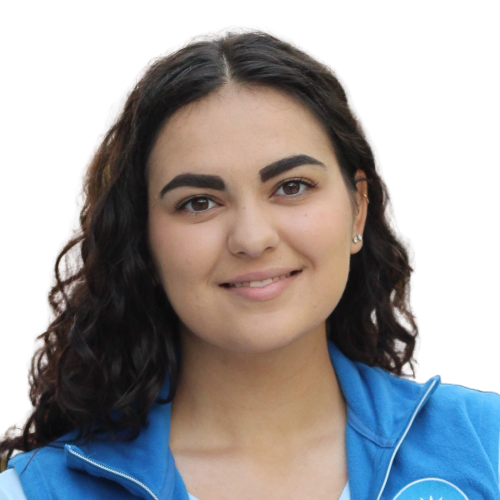
Emily Teves is a fourth-year concurrent education student at Queen’s University; she currently majors in psychology and plans to teach intermediate-senior biology and chemistry. Before attending Queen’s University, she completed the International Baccalaureate diploma program in her hometown of Toronto, Ontario. This unique educational experience provided her with many meaningful international opportunities, such as a two-week trip to volunteer at a local school in Ecuador. Since enrolling at Queen’s, she has had many additional experiences relating to educational leadership. These experiences include acting as a social outreach coordinator for Queen’s Refugee Relief club, an English-language tutor for a refugee family in Kingston, and a research assistant at Queen’s Adolescent Dynamics Lab in the department of psychology. She has also had many valuable experiences regarding educational leadership due to her involvement with the Concurrent Education Students’ Association. Through this association, she has had the opportunity to act as a photography coordinator, a social affairs coordinator, and an orientation leader. With this said, her most transformative experience was her role as Conference Chair for the Queen’s Conference on Education (QCE). Her responsibilities included coordinating, planning, and hosting of the conference in consultation with the QCE executive team, acting as a liaison between the executive team and the Faculty of Education, as well as working as the official contact person for conference delegates.
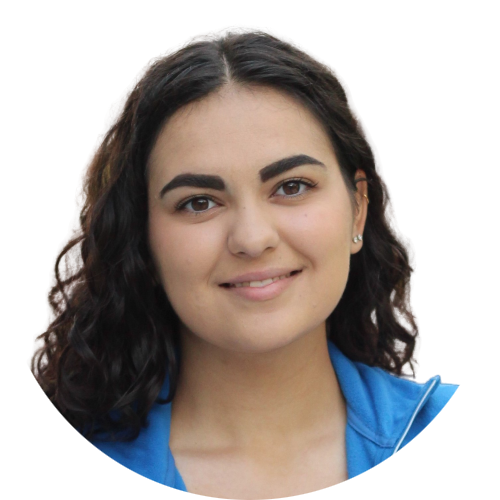
EMILY TEVES

Emily Teves is a fourth-year concurrent education student at Queen’s University; she currently majors in psychology and plans to teach intermediate-senior biology and chemistry. Before attending Queen’s University, she completed the International Baccalaureate diploma program in her hometown of Toronto, Ontario. This unique educational experience provided her with many meaningful international opportunities, such as a two-week trip to volunteer at a local school in Ecuador. Since enrolling at Queen’s, she has had many additional experiences relating to educational leadership. These experiences include acting as a social outreach coordinator for Queen’s Refugee Relief club, an English-language tutor for a refugee family in Kingston, and a research assistant at Queen’s Adolescent Dynamics Lab in the department of psychology. She has also had many valuable experiences regarding educational leadership due to her involvement with the Concurrent Education Students’ Association. Through this association, she has had the opportunity to act as a photography coordinator, a social affairs coordinator, and an orientation leader. With this said, her most transformative experience was her role as Conference Chair for the Queen’s Conference on Education (QCE). Her responsibilities included coordinating, planning, and hosting of the conference in consultation with the QCE executive team, acting as a liaison between the executive team and the Faculty of Education, as well as working as the official contact person for conference delegates.
PAUL VALLE
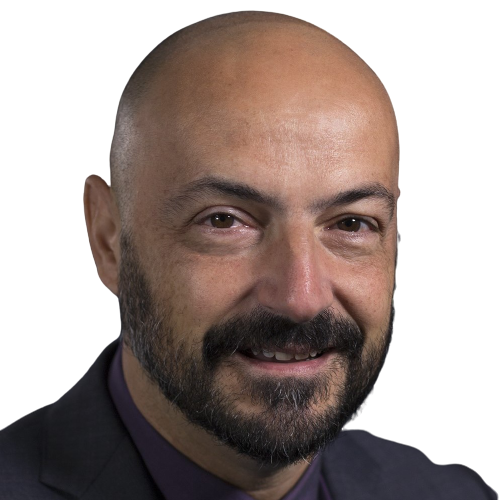
Mr. Paul Valle is a Superintendent of Schools with the York Region District School Board, in Markham Ontario Canada, where he works with schools and other district leaders to ensure strong academic programming for all students.
Previously, Mr. Paul Valle worked as a teacher, instructional coach, and administrator in multiple capacities. Most recently, he has served as the Superintendent of Schools in area West and currently is serving in area East of the York Region District School Board. With strong focused work on Literacy, Mathematics, Modern Learning, Mental Health, and Equity, the York Region District School Board continues to be a school district that is focused on building strong equitable practices for student achievement and well-being.
Mr. Paul Valle is passionate about teacher, school, and district leadership. With a strong importance placed on focused, positive, energetic and enthusiastic leadership, schools continue to be hubs of academic and social activity that provide rich learning experiences for students. These places of learning are supported by all members of staff in all levels of the organization. This is done through strong school and systemic leadership that is based on an asset based approach to academic programming and social emotional interventions. While applying research findings in the school environment, schools best prepare learners academically while empowering their curiosity and social know-how for their challenging and exciting future!
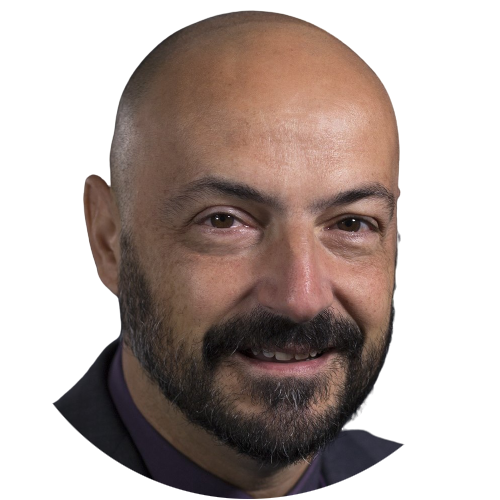
PAUL VALLE

Mr. Paul Valle is a Superintendent of Schools with the York Region District School Board, in Markham Ontario Canada, where he works with schools and other district leaders to ensure strong academic programming for all students.
Previously, Mr. Paul Valle worked as a teacher, instructional coach, and administrator in multiple capacities. Most recently, he has served as the Superintendent of Schools in area West and currently is serving in area East of the York Region District School Board. With strong focused work on Literacy, Mathematics, Modern Learning, Mental Health, and Equity, the York Region District School Board continues to be a school district that is focused on building strong equitable practices for student achievement and well-being.
Mr. Paul Valle is passionate about teacher, school, and district leadership. With a strong importance placed on focused, positive, energetic and enthusiastic leadership, schools continue to be hubs of academic and social activity that provide rich learning experiences for students. These places of learning are supported by all members of staff in all levels of the organization. This is done through strong school and systemic leadership that is based on an asset based approach to academic programming and social emotional interventions. While applying research findings in the school environment, schools best prepare learners academically while empowering their curiosity and social know-how for their challenging and exciting future!
HILDE WIIK
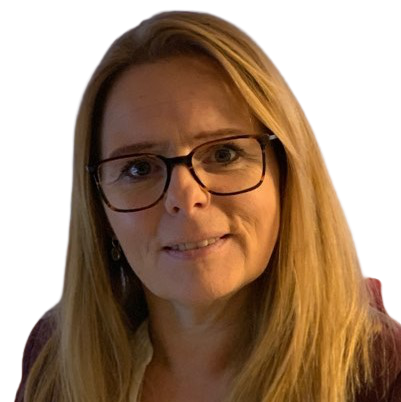
Hilde Ragny Wiik has been the Principal of Løpsmark School (grades 1-10), near Bodø, Norway, for six years. She graduated with her degree in teacher education in 1999 and spent the first nine years of her career instructing at the school she now leads. She later returned to Nord University to pursue a Masters degree in Human Resource Management and Leadership.
Recently she has led and managed two separate projects concentrated on how to enhance pupil’s motivation for learning through more practical, varied, and relevant education modes and methods.
Løpsmark School educates approximately 320 pupils, and this year the institution, under Hilde’s leadership, is focused on three priority areas: (1) cultivating a school environment (2) introducing the new national curriculum (3) becoming a “university school.”
In all her practice, Hilde focuses on creating an inclusive school which can accommodate any child, no matter their background or abilities. She encourages all of her employees to incorporate practices that customize education for students. She maintains that if educators are flexible and adopt inclusion as a common goal, practice, and philosophy, that the education system can thrive.
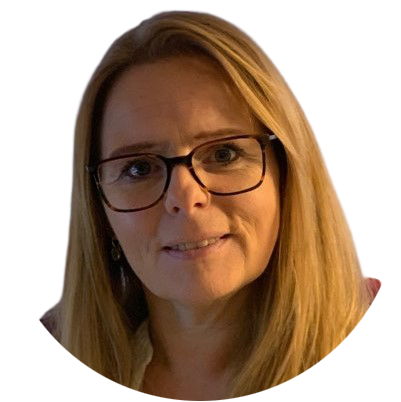
HILDE WIIK

Hilde Ragny Wiik has been the Principal of Løpsmark School (grades 1-10), near Bodø, Norway, for six years. She graduated with her degree in teacher education in 1999 and spent the first nine years of her career instructing at the school she now leads. She later returned to Nord University to pursue a Masters degree in Human Resource Management and Leadership.
Recently she has led and managed two separate projects concentrated on how to enhance pupil’s motivation for learning through more practical, varied, and relevant education modes and methods.
Løpsmark School educates approximately 320 pupils, and this year the institution, under Hilde’s leadership, is focused on three priority areas: (1) cultivating a school environment (2) introducing the new national curriculum (3) becoming a “university school.”
In all her practice, Hilde focuses on creating an inclusive school which can accommodate any child, no matter their background or abilities. She encourages all of her employees to incorporate practices that customize education for students. She maintains that if educators are flexible and adopt inclusion as a common goal, practice, and philosophy, that the education system can thrive.
